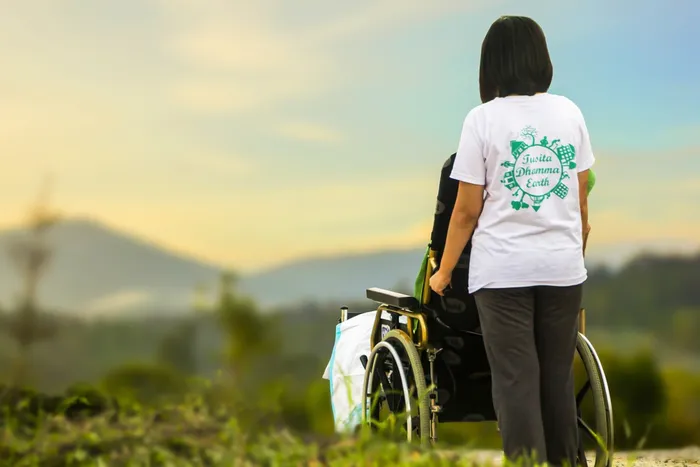
An Angolan woman is fighting to get a permanent residency in SA so that her disabled son can get better care. File Photo: Pixabay
An Angolan woman, who has been living in South Africa illegally for the last decade, is in a legal battle with the Department of Home Affairs (DHA) seeking permanent residence so that her disabled son can continue receiving free and lifelong care at a special school in Cape Town.
The woman, whose identity has been withheld to protect her family, came to the country in November 2013 and entered the country using a visitors’ visas that expired in January 2014.
She was in the company of her now 17-year-old son, her daughter, as well as her husband.
The reason they came to South Africa was to seek medical care for her son.
Shortly after they arrived, her husband returned to Angola and subsequently stopped sending money and cut ties with his wife and two children, leaving them impoverished.
In February 2014, the woman approached the DHA to apply for a medical treatment visa in order to stay in the country, but she was informed that she would have to do so from Angola.
However, due to her son’s health and travelling expenses, she was unable to do that.
Due to her illegal status, she is not eligible for employment and has been working on an informal basis to provide for her family’s basic needs
According to court papers, her son has severe dystonic spastic cerebral palsy, he is developmentally delayed and non-verbal, and suffers from a form of quadriplegia.
He is unable to move independently and is classified on a Level IV on the Gross Motor Function Classification Scale.
The son has been accepted at the Friends Centre in Cape Town and the centre specialises in providing care for children and adults with severe to profound physical disabilities.
The centre operates on dedicated donor funding including funding received from the South African Departments of Health and Social Development.
She further added that her son’s condition is incurable and he will require lifelong care and assistance, including ongoing therapy to prevent complications and maximise his mobility and function. At the centre, he receives speech therapy, language stimulation, aqua and other forms of therapy required for his condition.
The centre also provided him with an electronic wheelchair and a tablet to enable him to move himself and communicate with others.
Moreover, he will need multilevel surgeries which can be provided at Red Cross and its anticipated that these surgeries are required to alleviate his chronic pain and enable him to transfer from a wheelchair to a bed without being lifted.
The mother together with her daughter, argued that the boy will not receive all these benefits if they were to return to Angola.
They approached the DHA and asked the minister to grant them a special circumstances visa due to her the boy’s condition.
Former DHA minister, Aaron Motsoaledi, who is also medical doctor, said he acknowledged all the challenges experienced by the boy, however, he said the family’s application lacked detailed and satisfactory evidence on the lack of appropriate medical treatment in Angola.
Motsoaledi added that the severe disability and the lack of medical capacity in Angola was not sufficient to justify an exemption and the grant of permanent residency.
He further added that the country was already stretched thin and the family was not SA’s responsibility.
Unhappy with the outcome, the family approached the Western Cape High Court to review the minister’s decision.
Acting judge Nazreen Bawa, sat over the matter and said she was inclined to agree with the minister’s argument.
Judge Bawa said granting the family permanent residency based on a medical condition may create an exemption that was not contemplated by the Legislature.
Furthermore, she said currently, the mother and daughter are responsible for taking care of the boy at home and if that is no longer possible, the State has to step in and care for him in a special facility and this may set a precedent.
She said she was mindful that this matter has significant cost implications on the public purse or may result in an unintended precedent being set with a far wider impact.
“I am certainly not equipped to give proper consideration to what ultimately is a policy-laden decision to make,” she said.
Bawa said because the department has a new minister, she will send the matter back to him to be heard afresh.
“The matter is remitted to the Minister for reconsideration in the light of this judgment and to do so within a period of six months,” she said.
sinenhlanhla.masilela@iol.co.za
IOL News